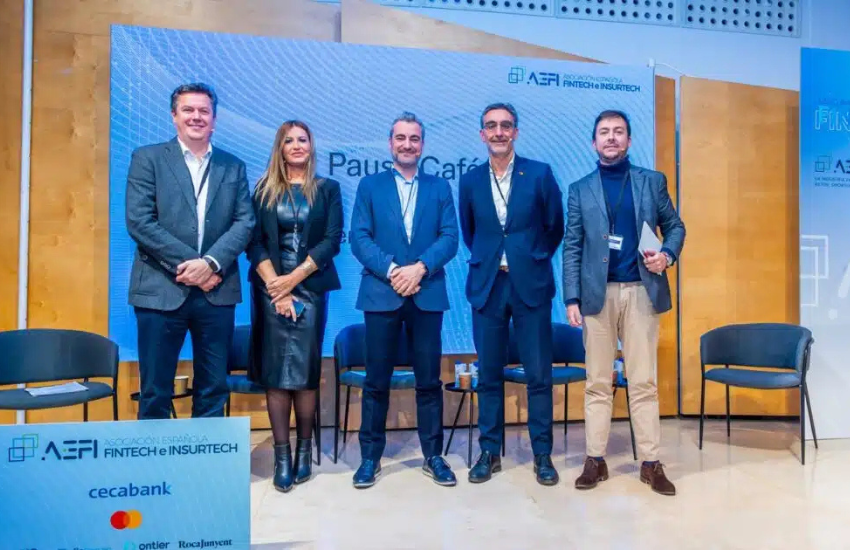
Juan José Gutiérrez, Corporate Director of Cecabank, took part in the presentation of the FinTech 2.0 White Paper at the '1st Financial Regulation Conference', organised by the Spanish Association of FinTech and InsurTech (AEFI)
As part of the 1st Financial Regulation Conference, organised by AEFI to present the FinTech 2.0 White Paper, several roundtables were held. One of them focused on the role of collaboration and cooperation in developing a more innovative, competitive, and inclusive financial ecosystem. The debate brought together representatives from key organisations in the sector, such as Cecabank, Mastercard (also the driving forces behind the white paper), and AEFI itself, who reflected on the challenges and opportunities arising from the collaboration between FinTechs and traditional players.
The roundtable highlighted that collaboration is a strategic tool essential to tackling the challenges facing the financial industry. A key topic discussed was the role of regulation, which was identified as a major barrier to innovation due to the high implementation costs and its complexity, particularly in Europe. Participants agreed that it is crucial to move towards a more flexible regulatory framework that allows FinTechs to fully develop their potential and facilitates integration with traditional entities.
Collaboration, a bridge to innovation
Alberto López, Vice President of Cybersecurity and Intelligent Solutions at Mastercard, noted how FinTechs have transformed the financial sector through their agility and adaptability. He stressed the importance of making internal processes of large corporations more flexible to support the growth of these emerging companies and encourage their internationalisation. He also shared concrete examples of initiatives driven by Mastercard, such as international competitions designed to give visibility to startups and SMEs with limited resources. “The key is to adapt to their specific needs, create shared value, and facilitate their integration and scalability in a competitive global market”, López said.
Meanwhile, Juan José Gutiérrez, Corporate Director of Technological Services at Cecabank, emphasised the potential of partnerships to create more robust and dynamic financial ecosystems. However, he pointed out that high regulatory costs pose a challenge that limits the resources available for innovation. “Not everything we invest in regulation can be used to improve the business or explore new opportunities”, he explained, adding that overcoming this barrier is key for traditional entities to remain competitive in a globalised environment.
An inclusive ecosystem with a social impact
On behalf of AEFI, vice presidents Silvia Escámez and Rodrigo García de la Cruz highlighted the crucial role of FinTechs in democratising access to financial services and improving financial education. They also pointed out that cooperation not only benefits FinTech companies, but also strengthens traditional entities, which find in these alliances a source of innovation and new business opportunities.
The roundtable concluded with a shared vision: collaboration is the driving force that will enable Spain to establish itself as a leader in financial innovation, but for this to happen, an inclusive and flexible ecosystem that fosters constant dialogue between regulators, businesses, and entities is essential.
At AEFI, we continue to work to facilitate this path, promoting cooperation and advocating for a regulatory framework that drives innovation and ensures the sustainable growth of the FinTech sector in Spain.

